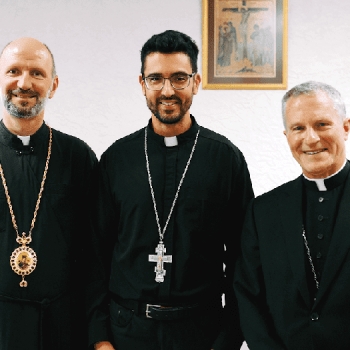I’ve been divorced.
Twice, actually.
I married the first time when I was young and scared and stupid. Can God forgive me for that?
I married the second time to someone I thought was perfect, who turned out to be as flawed as I am.
There are many of us in the pews who are in the same situation. Wondering.

Are my sins beyond the grace of God?
Some would say yes. Unless they were occasioned by adultery or abandonment, they are deep offenses against God.
The Bible talks about divorces a lot. God created us to be in relationship with one another. Just as he blessed us with one another, he also allows us to choose to sin in life.
Both marriage and divorce are matters that should be treated with the utmost seriousness. Neither should be entered into without thought, prayer, self-analysis and more.
In a sense, our society trivializes both. Marriage is about the ceremony and the party, with little thought given to the covenantal relationship of the parties. Easy marriage chapels can be found everywhere with mail-order ministers available to officiate.
Same with divorce. I understand the impetus for no-fault divorce, but it makes the choice an easy one to make. A convenient off ramp for when things don’t turn out like you anticipated.
Yet if we are limited to adultery or abandonment, does that mean we must endure abuse or violence? What about emotional abandonment? Clearly, these situations violate the Biblical admonitions to love and cherish one another.
I am a sinner
I have sinned plenty in my life. I freely admit I have coveted and lusted. I’ve lied and dishonored my parents. With repentance, God’s grace extended far enough to save me from these sins. His tender mercy draws me close and reminds me that I am not called to be perfect. I AM called to be repentant and to turn away from sin.
Does the church have a role?
God is in the reconciliation business. Shouldn’t the church be as well?
Instead of divorce support groups, how about pre-divorce reconciliation support? Rather than a decision made solely in the midst of individual pain, the church can encourage couples to walk this path slowly because the decision is extremely important.
I am not saying the church should judge or interfere in a couple’s decision whether or not to divorce. But it can encourage the couples, together and individually, to grow and deeply explore the possibility of reconciliation. Too often this decision is made without input or deep reflection.
Of course, both sides of the equation would need to be willing. Often, willingness is the stumbling block to growth or reconciliation.
So, am I going to hell?
If a single sin (or, in my case, a double sin) condemned me to hell, there would be little hope for any of us.
As a divorced believer, I claim the promise of John 14:6: “I am the way and the truth and the life. No one comes to the Father except through me.” (NIV)
The thing that will keep me heaven is my own failure to accept Jesus
He accepts me, with my sins and my faults. I am grateful for that. I am forgiven for my sins and my bad choices.
I pray for his wisdom to make wise future decisions.


















